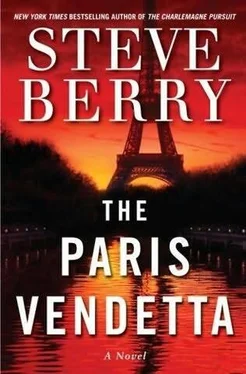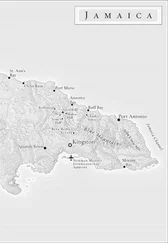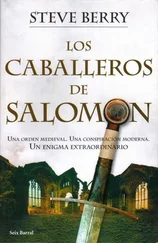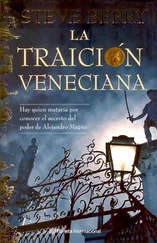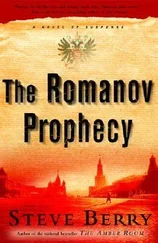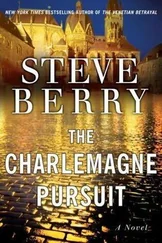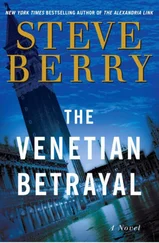Eyes filled with sadness stared back at him .
“Be well, Sam. Try to always do good.”
And he had.
Graduating college with honors, finally making it to the Secret Service. He sometimes wondered if Norstrum was still alive. It had been fourteen years since they’d last spoken. He’d never made contact simply because he did not want to disappoint the man any further.
I had hoped you’d stay .
But he couldn’t.
He and Malone turned a corner onto a side street, off the main boulevard. Ahead, the sidewalk rose toward the next intersection, and another wall with an iron fence stretched to their right. They followed the slow shuffle of feet to the corner and turned. A taller wall, topped with battlements, replaced the fence. Attached to its rough stone hung a colorful banner that announced MUSéE NATIONAL DU MOYEN AGE, THERMES DE CLUNY.
Cluny Museum of Medieval History.
The building that rose beyond the wall was a crenellated Gothic structure topped with a sloping slate roof, dotted with dormers. Foddrell disappeared through an entrance, and the two men followed.
Malone kept pace.
“What are we doing?” Sam asked.
“Improvising.”

MALONE KNEW WHERE THEY WERE HEADED. THE CLUNY MUSEUM stood on the site of a Roman palace, the ruins of its ancient baths still inside. The present mansion was erected in the 15th century by a Benedictine abbot. Not until the 19th century had the grounds become state-owned, displaying an impressive collection of medieval artifacts. It remained one of the must-sees on any Parisian itinerary. He’d visited a couple of times and recalled the inside. Two stories, one exhibit room opening into the next, one way in and out. Tight confines. Not a good place to go unnoticed.
He led the way as they entered a cloistered courtyard and caught sight of the two tails stepping through the main door. Maybe thirty camera-clad visitors milled in the courtyard.
He hesitated, then headed for the same entrance.
Sam followed.
The chamber beyond was a stone-walled anteroom converted into a reception center, with a cloakroom and stairway that led down to toilets. The two men were buying tickets from a cashier, then they turned and climbed stone risers into the museum. As they disappeared through a narrow doorway, he and Sam purchased their own tickets. They climbed the same risers and entered a crowded gift shop. No sign of Foddrell, but the two minders were already passing through another low doorway to their left. Malone caught sight of complimentary English brochures that explained the museum and grabbed one, quickly scanning the layout.
Sam noticed. “Henrik says you have a photographic memory. Is that true?”
“Eidetic memory,” he corrected. “Just a good mind for detail.”
“Are you always so precise?”
He stuffed the brochure into his back pocket. “Hardly ever.”
They entered an exhibit room illuminated by both sunlight from a mullioned window and some strategically placed incandescent floods that accented medieval porcelain, glass, and alabaster.
Neither Foddrell nor his tails were there.
They hustled into the next space, containing more ceramics, and caught sight of the two men just as they were exiting at the far side. Both rooms, so far, had been active with talkative visitors and clicking cameras. Malone knew from the brochure that ahead lay the Roman baths.
At the exit he spotted the two as they passed through a tight corridor, painted blue and lined with alabaster plaques, that opened into a lofty stone hallway. Down a flight of stone steps was the frígídaríum . But a placard announced that it was closed for renovations and a plastic chain blocked access. To their right, through an elaborate Gothic arch, a brightly lit hall housed remnants of statues. Folding metal chairs were arranged before a platform and podium. Some sort of presentation space that was clearly once an exterior courtyard.
Left led deeper into the museum.
The two men turned that way.
He and Sam approached and cautiously peered inside the next room, which rose two stories, naturally lit from an opaque ceiling. Rough-hewn stone walls towered forty feet. Probably once another courtyard, between buildings, now enclosed and displaying ivories, capital fragments, and more statuary.
Foddrell was nowhere to be seen, but Tweedledum and Tweedledee were headed toward the next exhibit space, which opened at the top of more stone risers.
“Those two are after me,” someone yelled, disturbing the librarylike silence.
Malone’s head craned upward.
Standing at a balustrade, on what would be the upper floor of the next building, pointing downward at the two men they were following, was a woman. Perhaps early thirties, with short-cut brownish hair. She wore one of the blue smocks that Malone had already noticed on other museum employees.
“They’re after me,” the woman screamed. “Trying to kill me.”
LOIRE VALLEY
THORVALDSEN FOLLOWED LAROCQUE FROM THE DRAWING room as they strolled farther into the château, out over the Cher, which flowed beneath the building’s foundations. Before coming, he’d learned the estate’s history and knew that its architecture had been conceived in the early 16th century, part of François I’s gallant, civilized court. A woman initially formulated the design, and that feminine influence remained evident. No power was asserted by buttressed walls or overwhelming size. Instead, inimitable grace evoked only a pleasant affluence.
“My family has owned this property for three centuries,” she said. “One owner built the central château on the north shore, where we were just seated, and a bridge to connect to the river’s south bank. Another erected a gallery atop the bridge.”
She motioned ahead.
He stared at a long rectangular hall, maybe sixty meters or more in length, the floor a black-and-white checkerboard, the ceiling supported by heavy oak beams. Streams of sunshine slanted inward through symmetrically placed windows that stretched, on both sides, from end to end.
“During the war, the Germans occupied the estate,” she said. “The south door at the far end was actually in the free zone. The door on this end the occupied zone. You can imagine what trouble that created.”
“I hate Germans,” he made clear.
She appraised him with a calculating gaze.
“They destroyed my family and country, and tried to destroy my religion. I can never forgive them.”
He allowed the fact that he was Jewish to register. His research on her had revealed a long-held prejudice against Jews. No specific reason that he could identify, just an inbred distaste, not uncommon. His vetting had also exposed another of her many obsessions. He’d been hoping she’d escort him through the château-and ahead, beside the pedimented entrance to another of the many rooms, illuminated by two tiny halogens, hung the portrait.
Right where he’d been told.
He stared at the image. Long ugly nose. A pair of oblique eyes, deeply set, casting a sidelong cunning glance. Powerful jaw. Jutting chin. A conical hat sheathing a nearly bare skull that made the figure look like a pope or a cardinal. But he’d been much more than that.
“Louis XI,” he said, pointing.
Larocque stopped. “You are an admirer?”
“What was said of him? Loved by the commons, hated by the great, feared by his enemies, and respected by the whole of Europe. He was a king.”
“No one knows if it’s an authentic image. But it has a strange quality, wouldn’t you say?”
He recalled what he’d been told about the stink of theater that hung around Louis XI’s memory. He ruled from 1461 to 1483 and managed to forge for himself a wondrous legend of greatness. In actuality, he was unscrupulous, openly rebelled against his father, treated his wife villainously, trusted few, and showed no mercy on anyone. His passion was the regeneration of France after the disastrous Hundred Years’ War. Tirelessly, he planned, plotted, and bribed, all with the aim of gathering under one crown lost lands.
Читать дальше
